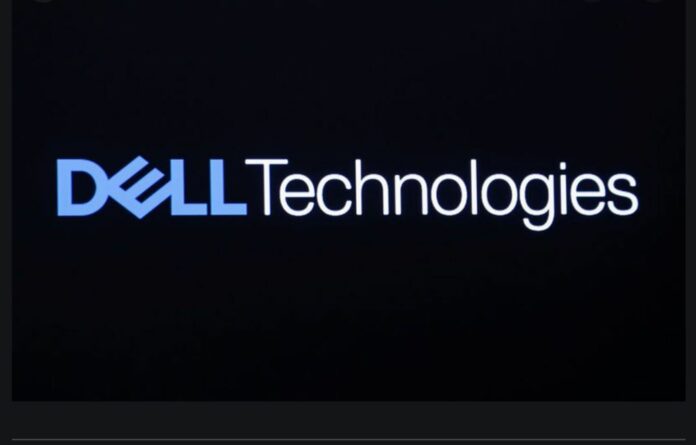The connections between IT vendors and their channel partners, including value-added resellers (VARs), original equipment manufacturers (OEMs), systems integrators (SIs) and managed service providers (MSPs), aren’t always clear to outsiders. In one sense, these are purely business relationships determined and defined by contractual and service agreements.
But closer examination reveals critical links where success depends on everyone involved doing right by one another and their common customers. That point is true in the best of circumstances but even clearer when times get hard. How so? Because channel players are mostly small- to medium-sized businesses (SMBs) that have neither the deep resources nor the long reach that Tier 1 IT vendors enjoy.
The extraordinary events playing out around the COVID-19 pandemic have created difficulties for all sorts of businesses. However, they have also sparked innovative new policies and solutions for channel partners, such as those recently discussed in a blog by Joyce Mullen, president of Dell’s Global Channel, OEM, Embedded and Edge Solutions organizations. Let’s take a closer look at what the company is doing.
‘Having our partners’ backs’
Mullen noted that “COVID-19 has changed the way we work, the way we interact and the way we approach public health.” However, it hasn’t changed Dell’s commitment to its partners. “We have our partners’ backs,” Mullen emphasizes. “We always have, and always will.”
So what is the company doing to support and sustain partners during this global crisis? In two ways; first are the new/updated services Dell offers partners:
- One-time cash payouts for up to 50 percent of current Dell Market Development Fund (MDF) / Business Development Fund (BDF) balances for use toward future partner marketing activities. Upon approval, partners will receive immediate payment up front, freeing up cash flow, offering flexibility and providing the time value of money. Further details will be available on the MDF/BDF program
- For metaled (data center/infrastructure) solutions providers, Dell is offering fee-waived Services Deployment training for Unity XT, VxRail and DP4400 from now until May 31, 2020. The company is also introducing new team-based pricing options to make all training more affordable for solutions providers.
- For distributors, Dell is removing 1H FY21 client solutions growth targets and increasing base rates to improve predictability of earnings. This aligns with the removal of target-based programs for solution providers the company announced in February 2020. Both efforts aim to simplify and improve earning predictability in our rebate structure.
- Dell is also extending unspent earned MDF and BDF that was set to expire between March and July to July 24, 2020.
Flexible, customizable financing
Dell has also made flexible additions in the programs and terms offered via its Working Capital Solutions (WCS) and Dell Financial Services (DFS). As Mullen notes, solutions can be fully customized to a partner’s customers’ needs to include deferred payment schedules and zero up-front costs to help preserve capital.
- 24-and 36-month financing at 0% interest for storage, servers, networking and data protection solutions and associated services.
- Low-rate financing for commercial notebook, desktop and all other Dell Technologies products.
- As low as a six-month term and rotation lease options for select laptops, thin clients and mobile workstations
- Up to three and six payment deferrals for qualified partners
- Short-term (1yr) flexible consumption options for converged, hyperconverged, hybrid cloud, storage, and data protection solutions where customers only pay for what they use. In addition, Dell’s Flex on Demand is available in three- and five-year term options.
DFS is an intriguing organization that isn’t as well-known or understood as it deserves to be. DFS has worked with Dell partners and customers for more than 22 years. The group’s originations increased by 16% YoY to $8.5B in FY20. DFS has also supported Dell’s flexible consumption solutions, including the company’s PC-as-a-service (PCaaS) offerings for more than 14 years. That part of DFS’ portfolio is approaching $3.5 billion in assets under management.
Unlike vendor financial services groups that work with third-party lenders, DFS is funded internally with $9 billion of liquidity. As a result, DFS can process most applications more quickly than other vendors. For example, the group says that deals under $500,000 typically take 24 hours to process. Larger deals are processed as quickly as possible.
In addition, Mullen noted in a recent call with analysts that “There is no bottom and there is no top” in terms of the amount of financing DFS will consider. That makes DFS a critical resource for Dell partners of every size and kind.
Final analysis
The COVID-19 has inflicted a generational crisis on billions of people and millions of companies. But even as it exerts massive stresses on businesses globally, the pandemic is providing a litmus test for the value of partner relationships. The partners you want are those who stick by you and willingly adjust so that your business can function as normally as possible during these remarkably abnormal times.
The points that Joyce Mullen made in her blog about the additions and changes that Dell has adopted related to COVID-19 shows that the company is just this sort of partner. So long as Dell has their backs, partners can focus on the challenges before them and be better prepared to survive and even thrive during these remarkable times.
Charles King is a principal analyst at PUND-IT and a regular contributor to eWEEK. © 2019 Pund-IT, Inc. All rights reserved.
